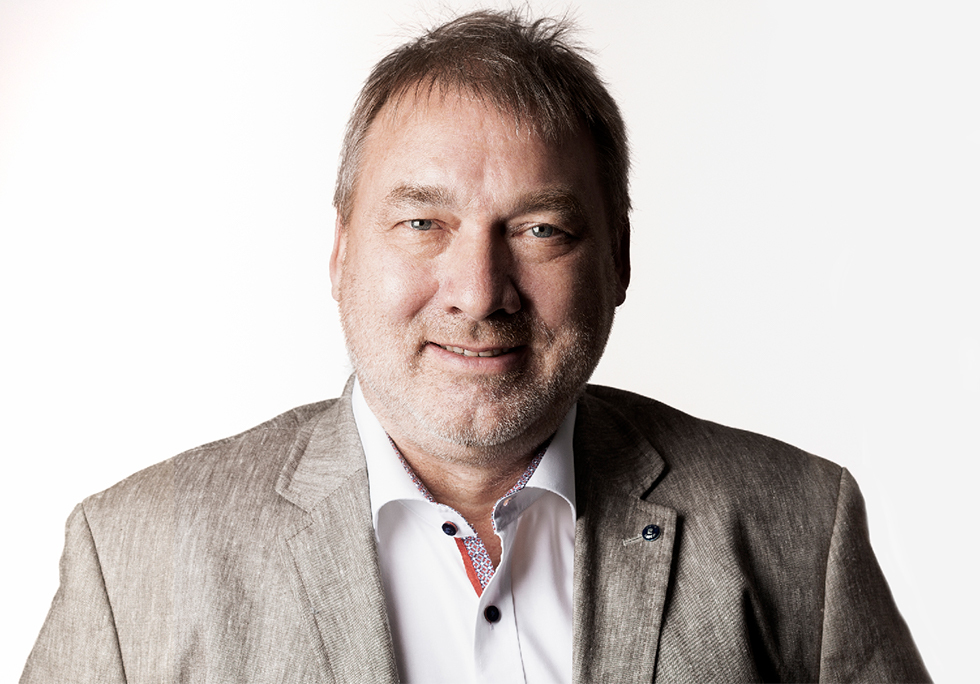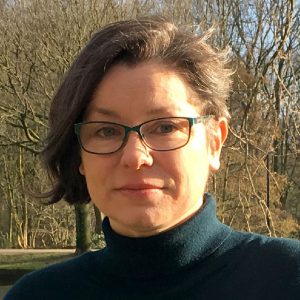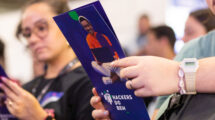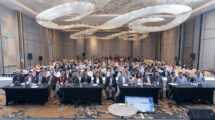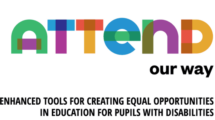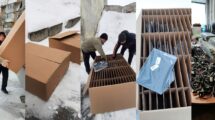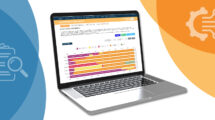René Buch is CEO of NORDUnet, which operates a network and e-infrastructure service for the Nordic R&E community. With 15 years in this role and the wider NREN community, what is his perspective on NORDUnet, GÉANT and the potential of EOSC? CONNECT spoke with him to find out more.
Interview by Laura Durnford (GÉANT)
How is NORDUnet supporting NRENs and their R&E communities in these difficult COVID-19 times?
The Nordic Countries are very fortunate, because after launching videoconferencing in 2006, they collaboratively evaluated future technologies and agreed that Zoom was the right way to go. We established a long-standing relationship with Zoom where NORDUnet and the Nordic NRENs provide both infrastructure and value add through 1st and 3rd line support. In November 2019 we had 5,000 concurrent users; now we passed 1.3 million licensed users and 110,000 concurrent users. All the Nordic universities can conduct their education, exams, teaching online.
We tried to help other NRENs by leveraging our relationship with Zoom. The problem is that, if you hadn’t had an agreement with vendors, it’s very difficult to come in at the last minute and say “hey, I want capacity for hundreds or thousands of users”, especially if you don’t add any other value than being a broker/reseller. So I think the lesson here for NRENs is start early, look beyond where you are today.
We actually started our contingency planning for COVID in January, so were about a week-and-a-half ahead of our government. We very quickly moved into a virtual space. We saw a significant increase in work and that all staff are pulling at least their own weight. I am very proud of our team, because it’s really been a team effort.
How do you see NORDUnet’s role in the international NREN community?
NORDUnet has been a member of GÉANT for a long time and I think GÉANT is an important community. NRENs and GÉANT have a fantastic role to play – especially if we keep looking ahead and predicting what’s going to be the next need for the users.
Yes, a number of my staff members and I come from the commercial side and we see options for optimising and, of course, we push that on to all our partners.
The Nordics are only a small part of the global NREN community. I’m a strong believer that the prices we are achieving, the ways we are functioning, and the capabilities we have increase when we work together globally. We see that economy of scale and knowledge about telecommunications are really beneficial, but that means we need to think differently in terms of how we invest, how we operate things.
Despite the size of NORDUnet – we are a small organisation – by having a very active strategy, I think we put a big fingerprint on where collaborations go, on both the European and global scale supported not only by NORDUnet staff but also from our very active Nordic NREN’s.
What value does GÉANT bring to NORDUnet?
I think the biggest thing that GEANT brings to NORDUNet is the community efforts and collaboration, the way we collaborate with the working groups and the stuff that we do. Part of it is the network also, but that is actually not the biggest thing for us; the biggest thing for us is that we have a collaborative effort, we have a forum for that and we can do projects together. I think that collaborative way, especially in terms of creating consortia between NRENs to tackle very large projects, that’s a crucial way for the future.
What is your vision on the EU’s plans around EOSC, EuroHPC etc. – and the role of GÉANT and NORDUnet in this?
If I look at EOSC, there are some very good elements. But we need to be careful that we are not creating a ‘Godzilla’ we can’t necessarily control and that is unable to deliver the services that users actually need.
I think the EU has a very strong potential to make a very big impact, especially in the realm of digital sovereignty, because we are extremely dependent on non-European entities. That’s an area where we should be much more active.
We should also more actively deal with changes caused by the monopolisation of cable and telecomms systems. Here the EU and some of the EOSC project have the potential to create value and a better European footprint. I think EuroHPC is a very good initiative, but the idea that we will build it solely on European technology is a phantom. Data is going to be key. As datasets become bigger, they will congregate towards fewer, bigger sites. I see the EuropHPC sites as computation clusters, not just for HPC machines, but different grades. Both in EuroHPC and EOSC, I think we need a whole range from big fat computers that crunch huge numbers and can help solve international crises like COVID, but also we should give students and small research communities the ability to look at datasets without having to go through very big projects. I hope we would see small machines – the smaller and less expensive they are the easier to donate to a research group and give them access to the data. That’s where we’d see real innovation and more European science coming out.
What do you see as NORDUnet’s biggest achievement in the past 5 years?
I think we already touched one of them, that we have the capability to support research and education in tough times and actually transform it into a digital learning space. Another is the two very collaborative efforts that we’ve been drivers in – that’s the ANA [Advanced North Atlantic] and CAE1 [Collaboration Asia Europe-1], which showed that Europe, Asia and Oceania together could create an infrastructure that would not have been possible 5 years ago. Seeing that these parts of the planet that were not traditionally working together, but seeing the benefit for everybody, that is a major achievement.
What is your vision for the next 5 years of NORDUnet?
We are being extremely pragmatic, to see how can we save money by re-using, and maximising usage. If we are going to be more efficient, we need to be partners in fibre systems. We need to make more consortiums and ensure that we have capacity and bartering tools so we can reach everywhere on the planet. How do we as NRENs serve the IoT of sensors on the planet, in the middle of the Atlantic, the Southern Pacific, the North Pole or Antarctica? How do we ensure that scientists can get data from their sensors back to the scientific stations? We have to find ways of dealing with the new wave of satellite providers and I think NRENs will need staff who are used to dealing with telecommunication providers. We need to work together as an NREN community so we can leverage our buying power, because otherwise we are going to pay high prices for buying in small bits and pieces. And I think we have an obligation to be smarter.
The NORDUnet conference was scheduled for September in Iceland – how do NORDUnet conferences complement TNC?
I really see them as complementary in many ways. This specific conference I have been really looking forward to – it’s our 40th anniversary this year, and there have been so few NREN conferences in 2020! I think conferences should be where collaborative efforts take place so that we don’t have to travel as much in between. We’ve become better at doing that, but I think still a bit of coordination could help.
After 15 years in this NREN community, what fact about yourself do you think will surprise people?
I think people might be surprised how passionate I am about collaboration and efficiency. I’m really not good at not striving for the best. I think it boils down to a deep desire to help others become better. That’s why it’s very difficult for me not to care and that’s why I’m such a pain in the ass sometimes. People might interpret this as other things, but it’s actually because I think we can do more and be even better.
